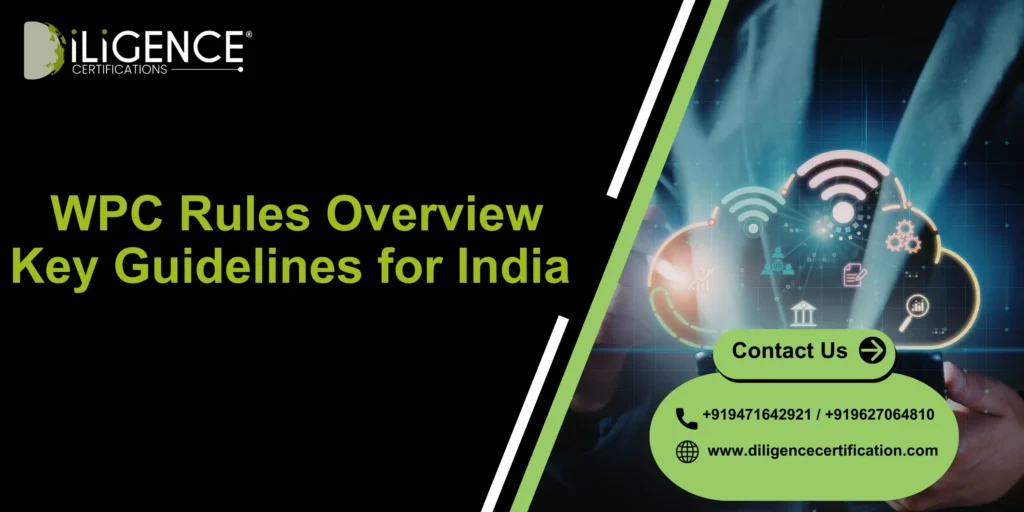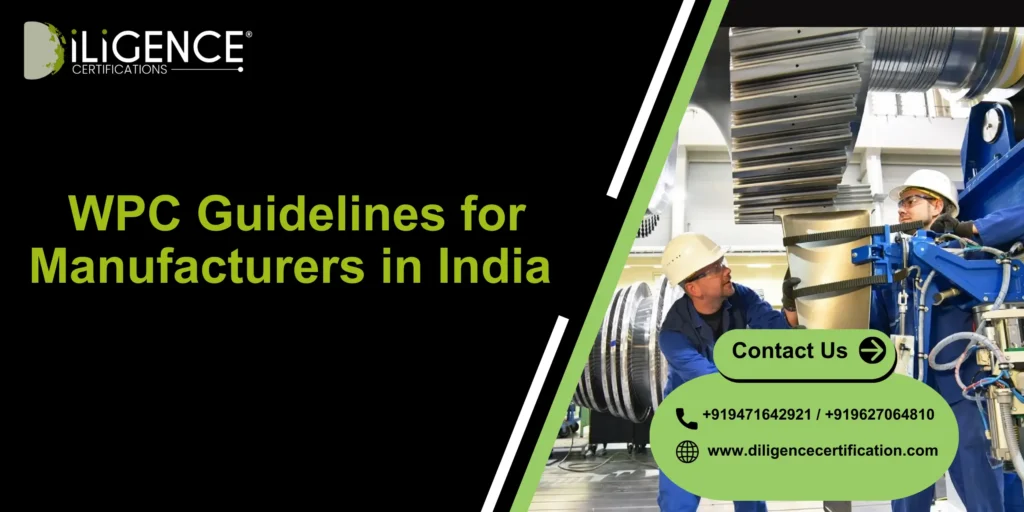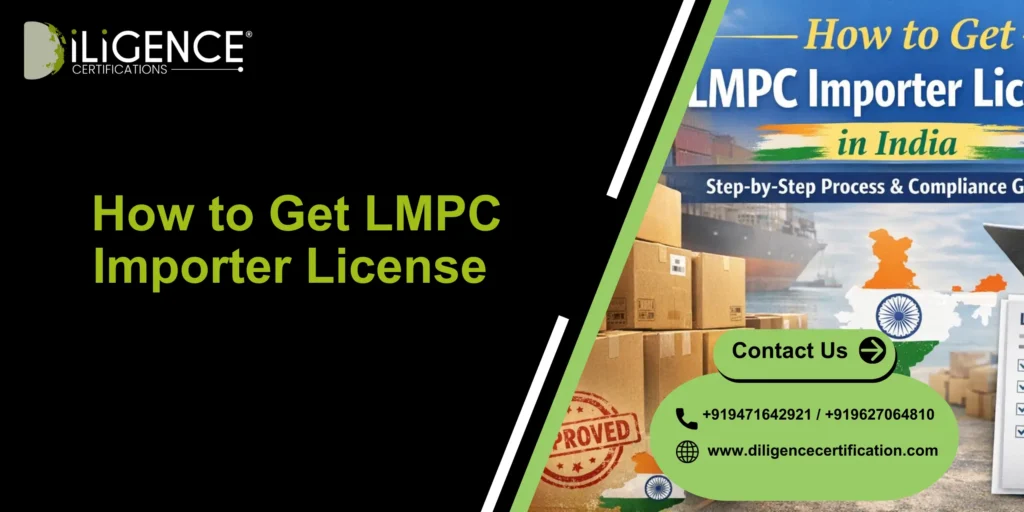- The licensed importation of drugs is necessary for the legal importation of drugs into India as per the Drugs & Cosmetics Act of 1940.
- Drug Import License is a requisite for companies to conform to quality, safety, and regulatory standards.
- The application is filed on prescribed forms and requires GMP certificates, company registration numbers, and other supporting evidence.
- Challenges include incomplete documentation, delayed inspections, and incorrect interpretation of regulations.
- Renewals must be processed timely–keeping records and following compliance standards, which are important for continued operations.
Introduction
When Medico Pharmaceuticals, a Chennai-based distributor, tried to import essential APIs from Germany, the shipment valued at ₹45 lakh was held at customs for three months. The reason? It did not have a proper CDSCO drug import license.
That pricey lesson in regulatory compliance is pretty common. India-made pharmaceutical industry is a vibrant one, but to navigate the regulatory lay of the land, one has to ensure compliance with the Drugs & Cosmetics Act of 1940. Be it active pharmaceutical ingredients, finished formulations, or niche medicines-COSCO drug import license is not mere paperwork but the legal basis on which you operate in the Indian Pharma sector.
What is a CDSCO Drug Import License?

The required regulatory approval that CDSCO approves for a drug import license to pharmaceutical companies is to legally import drugs, APIs, and allied substances into India. Under this law, the license functions under the Drugs & Cosmetics Act of 1940 and makes sure all the pharmaceutical products imported have passed rigorous quality, safety, and efficacy standards being imported.
Several critical things can be done through a drug import license. Your business is eligible to be licensed to import drugs and must maintain adequate infrastructure, ability, and quality control systems to ensure that imports are conducted in a responsible manner. It also tracks drugs that come into the Indian market and safeguards public health.
Most people tend to confuse a drug import license with a wholesale drug license. The import license is specific to the act of importing drugs into India from foreign countries, while the wholesale drug license operates for the purpose of marketing and sale of drugs within India. If you do import drugs for sale in India, chances are you might need both licenses.
“Now that I have realized how important a CDSCO drug import license is, I know it’s the legal way to import pharmaceuticals safely into India.”
Legal Framework Governing Drug Import License
In India, the law on drug import mainly runs through:
The Drugs & Cosmetics Act 1940; and
The Drugs & Cosmetics Rules 1945.
These legislations lay down how drugs may be manufactured, stored, distributed, sold, and imported into India.
National standards are provided by the Central Drugs Standard Control Organisation (CDSCO). It also carries out the approval processes for new drugs and clinical trials under its jurisdiction on imported drugs and pharmaceutical products. Under the Drugs Controller General of India, the CDSCO sets the standards related to the quality parameters for all drugs imported into India.
Upon payment of prescribed fees and granting of the drug import license, the CDSCO inspects the manufacturer for compliance with the Good Manufacturing Practices. The drugs imported are then tested in laboratories so approved by the CDSCO to ascertain conformity with the Indian Pharmacopoeia standards.
They invest heavily in compliance technologies, keep performing regular and continuous internal audits, and have a dedicated regulatory affairs team engaged full-time to ensure that the companies are at all times compliant with the CDSCO regulations.
Who Needs a Drug Import License?
A CDSCO drug import license is required across different pharmaceutical business domains:
- Pharmaceutical Manufacturers importing active pharmaceutical ingredients, excipients, or intermediates for manufacturing finished formulations shall apply for a drug import license. Import of raw materials requires an entirely different sanction, irrespective of holding a manufacturing license.
- Importing finished pharmaceutical products for distribution in India requires this license among distributors and wholesalers. And this corresponds to those businesses that source generic medicines, branded formulations, or specialized drugs from international suppliers.
- Hospitals and Healthcare Institutions, on the other hand, require a CDSCO drug import license to import specialized medicines that are not readily available in India. This mostly includes therapies for rare diseases, advanced biologics, or experimental therapies.
- Research Organizations and Clinical Trial Sponsors must procure appropriate import authorization when needing to import investigative new drugs for purposes of clinical research.
Types of CDSCO Drug Import License
There are different types of import licenses issued by the CDSCO, based on the intended use of the drug being imported.
The Form 10 License must be obtained for import any drugs for manufacture, sale or distribution purposes. This is by far the most common license type issued for all commercial pharmaceutical operations. A business wanting to import an API to manufacture into tablets, importing finished formulations for wholesale distribution, or importing bulk drugs for repackaging will all require Form 10.
Another important aspect of the Form 10 license is the intense scrutiny of your business infrastructure. The CDSCO checks your storage facilities, quality control laboratory standards, qualified personnel, and standard operating procedures before granting approval. The validity usually varies from one to five years.
Form 11 License for Import pertains to the import of drugs for testing, research or personal use. This applies to academic institutions, clinical trial sponsors, or persons importing medicines for their own treatment. Form 11 licenses do not require stringent infrastructure requirements; only detailed documentation must be provided.
There could be scenarios where you might need both licenses if your company deals with commercial distribution and research work as per the Drugs & Cosmetics Act of 1940.
Step-by-Step Process to Apply for CDSCO Drug Import License
Step 1: Pre-Application Preparation
Before proceeding for import drug license application, check that your company is legally constituted under a proper business structure. Evaluate your storage and handling facilities as per requirements so that they conform to pharmaceutical standards. Temperature-controlled storage should be adequately provided, pest control mechanisms installed, and ventilation ensured. Identify competent persons, especially a registered pharmacist as the responsible person.
Step 2: Online Application Submission
The applicant has to enter the CDSCO portal, which is the centralized online platform for all applications related to CDSCO. One needs to register first before proceeding to the section dealing with import license application. Enter the appropriate license type as would correspond to your business activity.
Every field of the application needs to be entered perfectly, include all business details, facility information, technical personnel details, types of drugs to import, and countries of source. Application delays are primarily due to incomplete information.
Step 3: Compile and Upload Documents
Compile all the required supporting documents in the format prescribed. This includes the filled-in application form, other supporting documents like proof of business registration, facility lay-out plans, list of equipments, technical staff qualifications, and undertaking letters.
Ensure all documents are clearly legible, signed, and certified as required. Arrange the documents well for easy review.
Step 4: Fee Payment
Pay the application fee as prescribed through the online portal. Fees will vary according to licensing type and drug categories. It automatically generates payment confirmation.
Step 5: Application Tracking and Inspection
You can track your application status on the CDSCO portal. CDSCO will process your CDSCO drug import license application and carry out a facility inspection. During inspection, authorities check whether your premises, equipment, and procedures comply with the application claims.
Prepare for the inspection well. Keep all records at hand, ensure your facility is clean and well-organized, and give your staff a briefing about questions they may face.
Step 6: License Issuance
After successful completion of the inspection and verification of compliance, CDSCO will issue your drug import license. You will be dispatched the license document, specifying authorized drug categories, validity period, and any special conditions, from the CDSCO portal.
One startup from Hyderabad finished the entire process in only 45 days by preparing all documents in advance, conducting a mock inspection with the help of a consultant, and thoroughly briefing their qualified pharmacist.
Key Documents Required for CDSCO Drug Import License
Documentation is the backbone of CDSCO drug import license application. The following is a complete checklist:
- Application Form in prescribed format for the type of license being applied for.
- Manufacturing or Testing License Copy if you are a manufacturer for importing raw materials, or if you are a research institute.
- Certificate of Analysis issued by foreign manufacturers for every category of drugs you intend to import.
- Good Manufacturing Practices Certificate issued by the authority in the source country to certify that the foreign manufacturer complies with good manufacturing quality standards.
- Company Registration Documents including the Certificate of Incorporation, PAN card, GST registration, and proof of address for the place of business.
- Facility Details comprising layout plans, list of equipment, specifications for storage infrastructure, and quality control laboratory.
- Qualified Person Details consisting of educational certificates, experience letters, and registration with State Pharmacy Council.
- Undertaking Letters certifying your commitment to maintain standards as prescribed under the Drugs & Cosmetics Act, 1940.
- Authorisation Letters if third parties are involved in storage, testing, or distribution activities.
“Missing one document can delay your license for months—preparation is key.”
Common Challenges in Obtaining CDSCO Drug Import License
- Document Incompleteness is the most frequent problem. Missing a signature, expired certificates, incomplete facility plans, all issues for rejection. The solution demands a systematic review of the document before submission.
- Misinterpretation of Requirements leads businesses to wrongly apply provisions of the Drugs & Cosmetics Act of 1940. Consult with regulatory experts to iron out such ambiguities.
- Facility Inspection Failures occur when the physical infrastructure does not conform to the submitted application claims. Usually raised issues are inadequate temperature control systems or improper segregation between categories of drugs. Conducting a pre-inspection audit will highlight these gaps.
- Unqualified Personnel would present issues before the Regulators. CDSCO insists that a registered pharmacist shall be in charge of the drug operations. However, at times, businesses put forward persons not qualified for the post, again leading to rejection.
- Delayed Responses to CDSCO queries lengthen the processing time. Give due and timely response to CDSCO requests as a sign of seriousness and hence shall speed up your approval for drug import license.
Regulatory consultants should be considered for first-time applications. Their exposure traverses the procedural intricacies to better the success rate.
Compliance Requirements After License Issuance
Getting your CDSCO drug import license is just the beginning. The company will be responsible for continuing obligations to maintain good regulatory standing.
- The Mandatory Record Keeping Requirement requires maintaining separate, detailed registers of all import transactions from which consignments are sourced, recording the quantities imported, batch numbers, manufacture and expiry dates, and particulars regarding its distribution.
- There also exist Reporting Obligations to notify CDSCO in case of adverse events, complaints on quality, or recalls of imported drug products.
- Under Quality Testing Protocols, imported drugs must be tested before they are released for distribution. Maintain an association with testing laboratories approved by the CDSCO.
- Storage and Handling Compliance provides the requirement to maintain prescribed temperature and humidity conditions for various categories of drugs.
- License renewal should be initiated well in advance of expiry. For renewal, CDSCO would require updated information about your facility, track record of compliance, and payment of renewal fees. If initiated at least 90 days prior to expiry, the renewal process would remain unobstructive to your operations.
- Amendments become necessary when changes in business circumstances occur. Adding new drug categories, changing premises, or replacing qualified persons require formal amendments from CDSCO.
- A distributor based out of Mumbai escaped penalties because meticulous import records were kept, and renewal of the license was started four months before expiry. During a surprise inspection, complete documentation was presented within minutes.
Costs and Validity of CDSCO Drug Import License
The application fee for CDSCO Drug Import License depends upon the type of the license, whether Form 10 or Form 11, and the category of drugs being imported, e.g.- APIs or finished formulations. While the commercial import licenses attract a higher license fee, license fees for laboratory use for testing or research purposes are comparatively lower.
Apart from the license fees, applicants are required to bear the supporting expenses such as certification of documents, renovation of facilities, consultant charges, testing of products, etc., in order to meet regulatory standards of CDSCO.
Normally, the licenses are granted for a period ranging from a few years, depending upon the grant of the license and the types of drugs specified under the Drugs & Cosmetics Act of 1940. Renewal is much easier and cheaper but strict compliance and documentation need to be continued at all times.
CDSCO also re-inspects the premises during renewal to ensure that they adhere to the quality standards during renewal. Banned must also provide for all costs arising from continuing compliance costs such as audits, employee training, record-keeping, etc., to support being continually ready for inspection.
Benefits of CDSCO Drugs Import License
Some of the benefits that a CDSCO drug import license imparts upon manufacturers, importers, and the healthcare ecosystem in India include:
It helps in protecting the patient and business from legal complications while also allowing smoother and greater operations in the pharmaceutical market of India. Some major benefits have been summarized as follows:
- Ensures Patient Safety – Through CDSCO certification, imported drugs are subjected to stringent quality checks so as to keep the patient away from any potential health hazards.
- Quality Assurance – Certified medicines are tested in accredited laboratories, given a quality certificate, and produce quality results effectively.
- Supports Market Demand – Since India is a large consumer of foreign drug suppliers on account of high domestic demand, the license ensures that imported drugs meet their safety and quality criteria.
- Strengthens Brand Identity – Products imported under CDSCO regulation provide credibility to the product, which strengthens the brand identity in the eyes of consumers.
- Seizing Market Access Opportunities – Manufacturers can actively seek opportunities for the market and further distribution by abiding by Indian norms.
- International Manufacturer Advantage – Foreign manufacturers can import drugs into India legally and thereby avail themselves of opportunities within this growing pharmaceutical market.
- Regulatory Audits and Compliance – The CDSCO undertakes regular inspections to ensure drugs are manufactured, stored, and transported in accordance with legal and quality standards.
- Risk Mitigation – These inspections help discover equipment or process weaknesses thereby limiting possible poses to patients.
- Enhancement of Operational Discipline – Adhering to CDSCO helps manufacturers and distributors adhere to good practices in the manufacture, storage, and logistics.
Eligibility to Import Registered Drugs in India
Drug import license is not permitted to every entity. Eligibility criteria under the Drugs & Cosmetics Act, 1940, include:
- Licensed Foreign Manufacturers – Any foreign manufacturer who has the license to sell drugs or distribute drugs in India can apply for an import license.
- Authorized Local Representatives – Indian agents or representatives of foreign manufacturers appointed by them, holding a valid manufacturing or sales license, can also import registered drugs.
- Compliance with CDSCO Requirements – The applicant must fulfill all the documentation, facility, and regulatory requirements set forth by the CDSCO.
Registered drugs can only be imported into India by duly authorized foreign manufacturers or Indian local representatives having proper authority and compliance credentials. This erects a barrier ensuring that all imported products meet the same stringent rules adopted for domestic manufacturing.
Conclusion
The Drug import license from a CDSCO is not merely regulatory paperwork but rather the foundation of a safe and lawful pharmaceutical operation . Whether you are a distributor-startup or an established manufacturer, or healthcare institution, knowing the requirements of import license under and observing them in the Drugs & Cosmetics Act, 1940 is what protects your business and the public health.
Applying for the license means preparing oneself, keeping track of documents, and, of course, constantly complying. A company that sets up infrastructure, qualified personnel, and organized record-keeping will gain faster approvals and establish greater resilience in their operations.
Some of the key activities include starting early with organized documentation, ensuring facilities are above the minimum standards, and hiring experts in regulatory laws while considering compliance as an ongoing process. Since regulatory guidelines change round about, it is wise to keep oneself updated through official communications from CDSCO.
The upswing of India’s pharmaceutical market is on, while especially for specialist medicines, biologics, and advanced therapies. It is the companies that stand on a strong regulatory footing that are ready to capture these opportunities.
Following this are an intensive readiness assessment, filling up infrastructure gaps, and consulting with regulatory experts for filing applications on the CDSCO portal. Picking a trustworthy regulatory advisor such as Diligence Certifications is bound to ease the path for you with compliant speed through market entry.
Compliance is not something that ought to be undertaken just for the sake of law; it is a strategic advantage that safeguards the patients, builds credibility, and promotes long-term development within an aggressively competitive pharmaceutical marketplace in India.
Frequently Asked Questions
What is the CDSCO Drug Import License?
This is a government instrument from CDSCO that permits Manufacturers or Authorized Representatives to import drugs into India legally under Drugs & Cosmetics Act, 1940.
Who can apply?
Foreign manufacturers with a license to sale/distribute in India or an authorized local representative with a license to manufacture/sale in India.
What Types of Licenses are available?
Form 10 – For commercial import of APIs or finished formulations.
Form 11 – For testing, research or personal use.
What documents are needed?
Application form, manufacturing/sales license, GMP certificate, certificate of analysis, and company registration documents
How long is it valid?
Generally, 1–5 years depending on the type of license and medication. Must be renewed before the expiry date.
What are common problems with CDSCO ?
Incomplete documentation, failing an inspection, and misunderstanding rules/regulations.
How to apply smoothly?
Organize your documents, bring your facility up to date, hire regulatory experts, and maintain active compliance.
Where do I apply?
CDSCO portal, which is the official government website to apply for a Drug Import License in India.








 BIS Certification
BIS Certification
 CDSCO
CDSCO
 CPCB
CPCB
 LMPC
LMPC
 WPC Approval
WPC Approval
 Global Approvals
Global Approvals
 TEC
TEC
 ARAI
ARAI
 BEE
BEE
 ISO Certification
ISO Certification
 DGCA Certification
DGCA Certification
 NOC For Steel
NOC For Steel



















 Business Registration
Business Registration















 Legal Services
Legal Services
 Trademark Registration
Trademark Registration
 Copyright Registration
Copyright Registration
 Patent Registration
Patent Registration















































